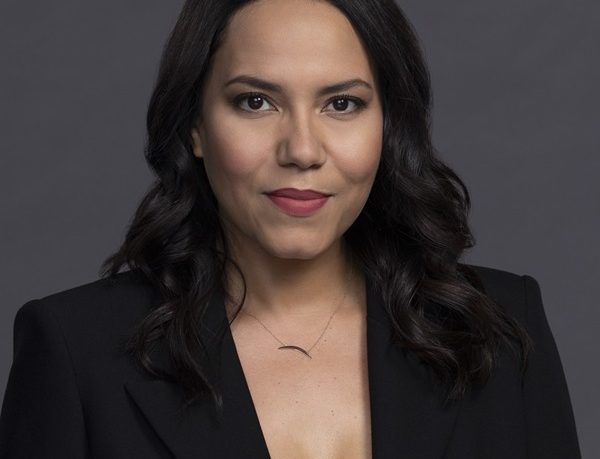Marissa Jo Cerar is not shy about putting her own life into her art. It’s all she knows. She spoke with EBONY about her new series on Hulu, Black Cake and her writing style. She also discussed how she plans to help push the button for other Black writers.
What made you want to bring Black Cake to the screen?
I wanted to see these characters who I fell in love with on the page. These young women and these Black, Brown, Asian and queer people are very complicated characters. I wanted to see them on a screen because I don’t see enough of these characters as the main characters or as the heroes in my favorite TV shows and movies. I love the worlds I was introduced to. I had never been to Jamaica in the 1960s. I had never been (to Jamaica) before I started scouting locations for the show. My idea of Jamaica was the resorts and cruise ships. Then when I went there and met the people, I fell even deeper in love. I felt like I had a true responsibility to get it right, to tell the story right, and to really portray this beautiful community in the best light.
Mia Isaac displays powerful acting at such a young age. How much did you enjoy watching her on the screen?
I am in awe. When I met her on Zoom, she immediately brought Covey to life instantly. She’s such a young person and learned the accent so quickly. I truly am so lucky that we found her. She’s an amazing actor and a wonderful human being. She can do anything and she’s so honest, and everything is rooted in truth. She doesn’t do anything that’s false.
Black Cake’s Director Marissa Jo Cerar with Charmaine Wilkerson. Image: courtesy of James Van Evers/Hulu.
While writing this project, did you find a little bit of yourself in this series?
I like to vomit up my life story at the drop of a hat. It’s just who I am. I’m just an open wound for the world to see. Being adopted, being mixed race, being a part of a very unique family, in a small community where everybody sort of knows everybody. I have a mixed-race daughter and seeing how she grows, I wonder what kind of world she’s going to live in and how it’s going to affect her. So much of that is put into the show.
As a Black writer, post-strike, is there any worry that you will still be discriminated against? Or still be treated unfairly?
I’m not worried about discrimination for myself at all, I’m not worried about my relationship with my network or studio or anything like that. The thing I’m worried about, for other Black writers and showrunners, is making sure our stories aren’t a trend, and that our stories aren’t the first to go. Making sure that we’re working and we’re coming up with material to create shows so that we can bring up the people underneath us. That is the responsibility that we all take, at least the people I know, take seriously.
What was the Film or TV show that made you want to become a writer?
I think as a little kid, it was Annie. As a little kid, you can tell the story is about being an orphan, but then it’s fun and it has really good music. I’m adopted so that probably has something to do with it. That’s my earliest memory. I’ve just known since I was so young that I wanted to tell stories. I can’t imagine doing anything else.



